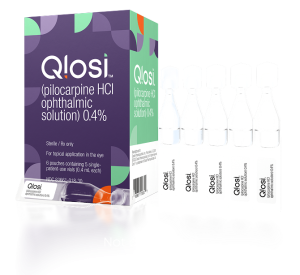
Presbyopia, also known as age-related farsightedness, affects most people after the age of 40. Gradually, adults notice that their ability to look at objects (such as a book, a computer screen, a sewing needle, etc.) up close diminishes. While many patients start wearing reading glasses or adjust their existing prescription lenses to increase the quality of their vision, some choose to seek treatments to avoid having to rely on eyewear. The experts at Atlanta Vision Cataract & Laser Center are happy to discuss all options with patients experiencing presbyopia.
Understanding Presbyopia
Presbyopia is a normal result of the aging process. The crystalline lens within the eyes is composed of proteins. These proteins are soft and flexible when the patient is younger. As the patient approaches middle age, presbyopia takes hold as the protein composition of the lens changes, making it harder and less flexible. When the lens loses its ability to flex, it is no longer able to change its shape and effectively bend light rays as sharply, and the ability to focus on near objects is diminished.
Symptoms of presbyopia typically begin between age 40 and 50 and progressively worsen through age 65. When presbyopia beings, people who already wear glasses may need bifocals or trifocals, and those who have never worn glasses may require reading glasses.
Treatments
Qlosi
Atlanta Vision Cataract & Laser Center is proud to offer Qlosi, an innovative treatment for presbyopia—age-related difficulty seeing up close. Qlosi is an FDA-approved prescription eye drop designed to improve near vision without the need for reading glasses.
Qlosi contains pilocarpine hydrochloride 0.4%, a well-studied medication that works by gently constricting the pupil. This effect increases the depth of focus, helping the eye naturally adjust between near and distant objects. Most patients experience enhanced near vision within about 20 minutes of applying the drops, with effects lasting up to 8 hours.
In clinical trials, Qlosi has shown meaningful improvements in near vision for many patients, allowing them to perform daily tasks like reading, using a phone, or working on a computer without glasses. The treatment has a favorable safety profile, with most side effects being mild and temporary—such as eye redness or headache.
If you’re experiencing the effects of presbyopia and looking for a non-invasive option, schedule a consultation with our doctors. After a comprehensive eye exam, we can determine if Qlosi is the right solution for your visual needs.
LASIK
Because LASIK does not correct the eye’s focusing muscles or crystalline lens, it does not address ordinary presbyopia. However, if you need to have your distance vision corrected and need some help with close vision because you are beginning to experience presbyopia, LASIK may be an option if performed as a specialized monovision LASIK.
Currently, monovision LASIK is the most popular vision correction surgery for presbyopia treatment. During monovision LASIK surgery in Atlanta, Dr. David O’Day corrects one eye for distance vision and leaves the other eye for near vision. After monovision LASIK, a person relies on one eye for driving and other distance vision tasks and uses the other eye for computer work and reading. Though this may sound a bit strange, after a short period of adjustment and adaptation, monovision typically feels natural; most monovision LASIK patients are pleased with their vision and are significantly less dependent on reading glasses.
Make an Appointment to Improve Your Vision
The trusted team of doctors at Atlanta Vision Cataract & Laser Center have helped many patients to overcome blurry vision caused by presbyopia with the latest treatments. To determine if these options are a good choice for you, please schedule an appointment by calling (404) 765-2020.
